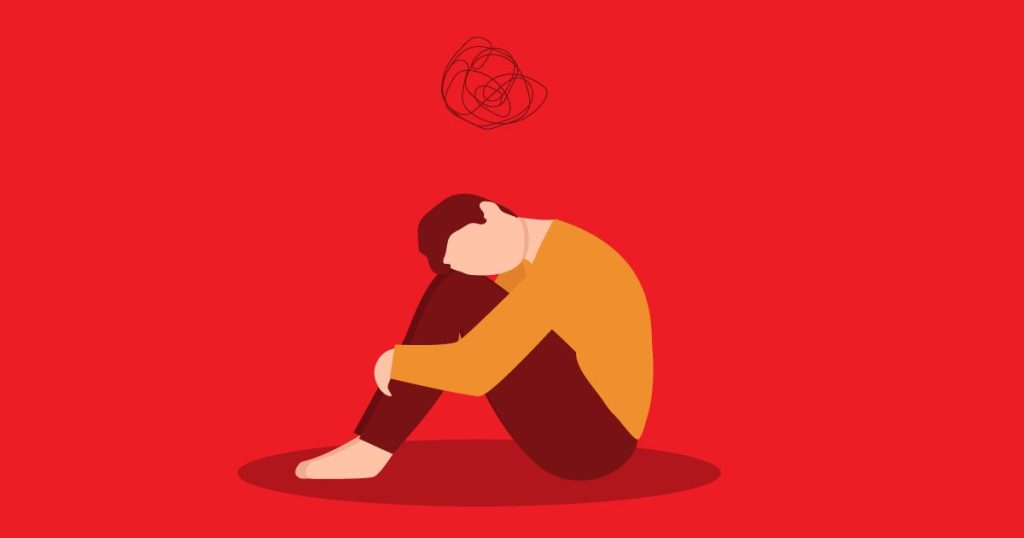Our mental health would be better if meetings didn’t take up the whole day.
Ever feel exhausted and drained after a day of meetings? You’re not alone! According to Atlassian, top executives spend an average of 18 hours a week in meetings. In addition, 73% of employees find themselves doing other work during meetings. Shockingly, 47% say meetings are the biggest waste of time at work. These figures highlight the problem of too many meetings, and these long meetings have a serious impact on employees’ productivity and mental health, leading to accumulated stress, burnout, and generational conflicts. LIFE invites readers to analyze the causes of this problem, the impact on mental health, and solutions that both older and younger generations can actually apply.

The Cause of the Problem When Old Cultures Clash with the New World
Many people who have been working for a long time may have grown up with Thai corporate culture. Some may believe that “long meetings mean working hard.” Try reading and see if these sentences sound familiar or if you’ve ever heard them: “We have to have detailed meetings so that we don’t make mistakes” or “We have to let everyone have their say”. These are examples of traditional work cultures that emphasize process more than results and prioritize seniority over efficiency.
Generational differences in the workforce
When Gen Z has to work with Baby Boomers, the เว็บพนันออนไลน์ UFABET สมัครง่าย โปรโมชั่นมากมาย younger generation may want speed, flexibility, and efficiency, but the older generation tends to be too fixated on procedures and details, which can lead to conflicts in working together.
When Zoom meetings become torture chambers
Nowadays, many companies work as a hybrid work that combines working in the office and working remotely (Remote Work), or some companies let employees work from home. And when having to have ineffective online meetings, whether it’s internet problems, difficult app usage, or lack of skills to present on the screen, it makes the meeting even more protracted and boring.
The mental health impact of time-consuming meetings
Stress from overtime work leads to ‘work not getting done because of meetings all day’. Long meetings mean less actual working time, resulting in more overtime work, sleeping later, and accumulated stress and health problems.
The emotional impact of feeling worthless, ‘It’s useless to talk, no one listens’
In meetings, many people may feel bored with the same old atmosphere when their ideas are not considered or ignored by their boss, making them feel that they are not valued in the team, making each meeting feel even more miserable.
Feeling bored and uninspired
‘Do I come to work or listen to others argue?’ Have you ever had a meeting topic become like rowing in a tub, going round and round, unable to reach a conclusion? Your boss may order you to take a break and then come back to the meeting like rowing in a tub again? Ineffective meetings waste time and burn out your energy to work.
Invite to solve the problem by revolutionizing the meeting culture
Change the meeting format
Leaders should set a clear and concise agenda for meetings, such as the Agile ’15-minute meeting’ format. The Agile 15-minute meeting starts with a brief agenda review, followed by an update on the status of each person’s work. Then, together, they identify obstacles and work on solutions, plan for the following week, and conclude the meeting with assignments. Use tools like Trello or Miro to add:
Support everyone’s participation
- Use the Round Robin technique where everyone gets 1-2 minutes to speak in every meeting to make everyone feel that their opinions matter and have an equal opportunity to express themselves.
- Create an open atmosphere, such as asking, “Does anyone disagree?” instead of, “Does everyone agree?”
Adjusting the mindset of both Gen Z and Baby Boomers
For the older generation, they should try to open their minds to new ideas from the younger generation. Sometimes, they might get more efficient ways to work. They should also learn new technologies, not just how to use them, but how to use them to their fullest potential.
For the new generation, Gen Z
Practice communicating to the point and effectively. It is not just about being good at speaking, but also about communicating so that people can understand. You must also show responsibility for the tasks you are assigned to build credibility. Find opportunities to learn from the experiences of older generations and apply them to new working methods.
Many people who have been working for a long time may have grown up with a Thai corporate culture. Some may believe that ‘long meetings mean hard work’.
This is the traditional way of working that emphasizes process over results and prioritizes seniority over efficiency.
Generational differences in the workforce can be a problem when Gen Z meets with Baby Boomers. The younger generation may want speed, flexibility, and efficiency, while the older generation tends to be too focused on procedures and details.
The mental health impact of wasting time in meetings all day is the stress of working overtime, which causes ‘work not getting done because of meetings all day’.
Long meetings lead to less actual working time, resulting in more overtime, sleeping later, and accumulated stress and health problems.
Leaders should set a clear and concise agenda, such as using an Agile ’15-minute meeting’ format or using a ’round robin’ technique where everyone gets 1-2 minutes to speak in each meeting. Summarize and then disperse to do their own work.
The older generation should try to open their minds to new ideas from the younger generation. They should also learn new technologies, not just how to use them, but how to make the most of them.
The new generation should practice communicating to the point and effectively. It is not just about being good at speaking, but also about communicating so that people can understand.